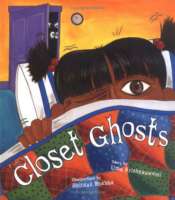
With help from Hanuman, the Hindu monkey god, Anu finds a way to cope with going to a new school, living in a new home, and even dealing with the mischievous ghosts in her closet.
Materials from Asia

With help from Hanuman, the Hindu monkey god, Anu finds a way to cope with going to a new school, living in a new home, and even dealing with the mischievous ghosts in her closet.
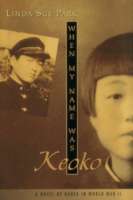
Sun-hee and her older brother Tae-yul are proud of their Korean heritage. Yet they live their lives under Japanese occupation. All students must read and write in Japanese and no one can fly the Korean flag. Hardest of all is when the Japanese Emperor forces all Koreans to take Japanese names. Sun-hee and Tae-yul become Keoko and Nobuo. Korea is torn apart by their Japanese invaders during World War II. Everyone must help with war preparations, but it doesn’t mean they are willing to defend Japan. Tae-yul is about to risk his life to help his family, while Sun-hee stays home guarding life-and-death secrets.
Jane Addams Honor Book
Featured in Volume I, Issue 1 of WOW Review.
This book has been included in WOW’s Language and Learning: Children’s and Young Adult Fiction Booklist. For our current list, visit our Booklist page under Resources in the green navigation bar.

When is a hat not a hat? A serendipitous breeze starts off this playful journey which begs the simple question, “When is a hat, not a hat?” Along the way, Rabbit manages to learn a little bit about friendship and the importance of believing in himself.

This warm, multigenerational story offers a glimpse into the distinctive culture and customs of India, while reinforcing universal themes of love and the importance of family. Every day, Rupa’s grandmother wears a beautiful sari. She shares with her young granddaughter all the wonderful things that saris can do-from becoming an umbrella in a rainstorm to providing a deep pouch to carry seashells collected from the beach. Soon Rupa’s own imagination is sparked with new uses for the saris. A note from the author and instructions for wrapping a sari are included.

When the bomb was dropped on Nagasaki, Mieko’s nearby village was turned into ruins, and her hand was badly injured. Mieko loves to do calligraphy more than anything, but now she can barely hold a paintbrush. And she feels as if she has lost something that she can’t paint without-the legendary fifth treasure, beauty in the heart. Then she is sent to live with her grandparents and must go to a new school. But Mieko is brave and eventually learns that time and patience can help with many things, and may even help her find the fifth treasure. Written by the author of Sadako and the Thousand Cranes, Mieko,s story will touch the hearts of all its readers.

These vividly told tales of plantation life from decades past center around the lives of Marita Kim and her four younger brothers and sisters. The children experience many hardships growing up poor and motherless in a Korean camp in Hawaii, but their stories are full of adventure. In “Joe and the White Dog,” Joe takes Little Sister exploring and loses her… until a mysterious white-haired woman and her friendly dog appear to help. In “The Little People,” fearless six-year-old Puni searches for menehune to grant her wish for a new doll. The stories also provide a poignant look at the family’s daily struggles. In “Plantation Child” we see, through the eyes of Marita, the sacrifices made to pay for a pair of new shoes, the need for thrift and hard work to make ends meet. In “The Pineapple Cannery” we share in Marita’s excitement as she begins a new life working in Honolulu. The last story, “Abuji,” is a tender portrait of the long-widowed father, reminiscing about his youth and his return journey to Korea. Moving from child to child, from story to story, Eve Begley Kiehm brings to life a formative period in the history of Korean Americans in Hawaii.
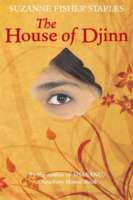
It has been ten years since Shabanu staged her death to secure the safety of her daughter, Mumtaz, from her husband’s murderous brother. Mumtaz has been raised by her father’s family with the education and security her mother desired for her, but with little understanding and love. Only her American cousin Jameel, her closest confidant and friend, and the beloved family patriarch, Baba, understand the pain of her loneliness. When Baba unexpectedly dies, Jameel’s succession as the Amirzai tribal leader and the arrangement of his marriage to Mumtaz are revealed, causing both to question whether fulfilling their duty to the family is worth giving up their dreams for the future.
This is a sequel to the novels Shabanu: Daughter of the Wind and Haveli.

This book examines the lives and times of the Tibetan people, their cultural complexities, the country’s astonishing geography, and its economic and political status.
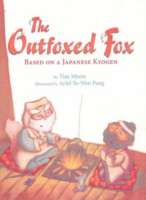
A proud old fox scorns a youngster’s simple plan for stopping the hunter who has grown skillful at killing foxes, but when he sets out to handle the problem himself, he runs into trouble.
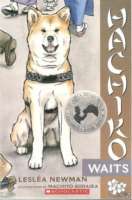
Hachi, an Akita pup, reveres his master and likes nothing more than accompanying Japanese professor Eizaburo Ueno to his morning train and then meeting him in the afternoon. One day the professor dies while at work, yet the faithful Hachi awaits his return at the station every day until his own death some 10 years later. Newman’s fictionalized account of this true story adds a young boy, Yasuo, who befriends the dog and the professor and later cares for Hachi during his steadfast vigil at the Shibuya train station in Japan.